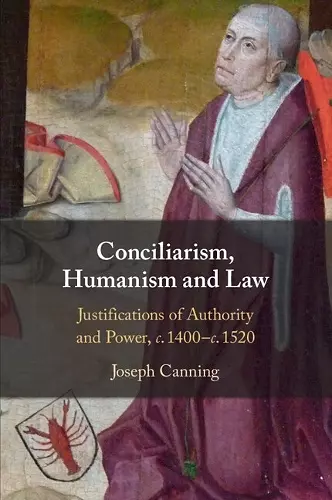Conciliarism, Humanism and Law
Justifications of Authority and Power, c. 1400–c. 1520
Format:Paperback
Publisher:Cambridge University Press
Published:2nd Nov '23
Currently unavailable, and unfortunately no date known when it will be back
This paperback is available in another edition too:
- Hardback£78.00(9781108831796)

Explores how power and authority were justified in late medieval Europe, addressing arguments that people at the time found convincing.
Set against the background of juristic thought and addressing the arguments that people at the time found convincing, this study explores how power and authority were justified in late medieval Europe, through the two key intellectual movements of the fifteenth century: conciliarism in the church, and humanism.How was power justified in late medieval Europe? What justifications did people find convincing, and why? Based around the two key intellectual movements of the fifteenth century, conciliarism in the church and humanism, this study explores the justifications for the distribution of power and authority in fifteenth- and early sixteenth-century Europe. By examining the arguments that convinced people in this period, Joseph Canning demonstrates that it was almost universally assumed that power had to be justified but that there were fundamentally different kinds of justification employed. Against the background of juristic thought, Canning presents a new interpretative approach to the justifications of power through the lenses of conciliarism, humanism and law, throwing fresh light on our understanding of both conciliarists' ideas and the contribution of Italian Renaissance humanists.
'This book does something new: no-one has looked at the justifications of power through the lenses of conciliarism, humanism and law in this way before. Canning refreshes the study both of conciliarists' ideas and of the political thought of Italian Renaissance humanists.' David D'Avray, University College London
'This comprehensive survey demonstrates the wide range of political ideas current on the eve of the Reformation. As such, it is crucial for understanding theories of power during the transition from medieval to modern Europe.' Antony Black, University of Dundee
'The particular merit of the present study is that it places three formative forms of late medieval political culture on an equal footing and follows their characteristics and developmental tendencies.' Thomas Wolki, Sehepunkte
ISBN: 9781108927192
Dimensions: 228mm x 152mm x 11mm
Weight: 320g
215 pages